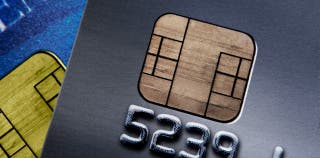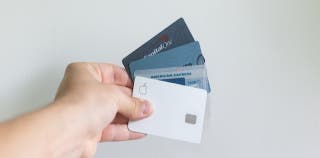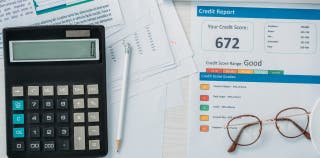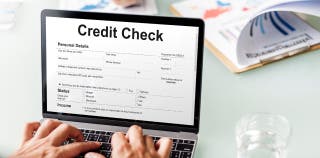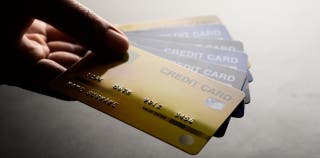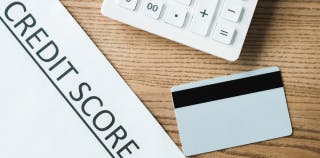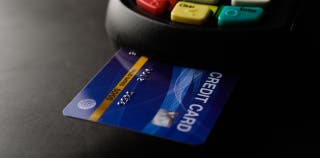What is a credit score?
Your credit score is a three-digit number that represents your overall credit health, but you should know that each person has multiple scores assigned to them.
In fact, there are different types of credit scores out there, including the FICO score and the VantageScore. Every consumer can also have different credit scores from each of the credit bureaus — Experian, Equifax, and TransUnion.
Since the FICO score is the most popular type of credit score used by 90% of top lenders, we’ll focus on how it works for the purpose of this guide. Generally speaking, FICO credit scores fall between 300 and 850, and higher scores are better overall.
Factors that affect your credit score
The credit bureaus use several criteria in order to assign consumers with a FICO credit score of their own.
These factors are all weighted based on their level of importance, as we explain below.
Payment history (35%): This factor is the biggest determinant of your FICO score, and it is based on your history of making on-time payments across all credit accounts you have. Where a long history of early and on-time payments can help your credit score, late payments can negatively impact your credit score in a big way.
Amount owed (30%): This factor is determined based on how much debt you have in relation to your credit limits, or your credit utilization ratio. To secure the best score in this category, you should strive to keep your revolving debt at 30% of your available credit or below.
Length of credit history (15%): The length of your credit history makes up another 15% of your FICO credit score, and the longer your history the better. Also note that opening a new credit card or another credit account will automatically shorten the average length of your credit history.
New credit (10%): New credit makes up another 10% of your score, and this factor is impacted the most when you apply for a new credit card or a loan. Each application for new credit results in a hard inquiry on your credit report, which can negatively impact your score in the short-term and cause bad credit.
Credit mix (10%): Your credit mix is determined based on the different types of credit you have access to. Generally speaking, you’ll score better in this category if you have a mix of different types of credit on your credit profile such as installment loans, auto loans, revolving credit lines, a mortgage, and more.
Factors that don’t impact your credit score
While the factors we outlined above can impact your credit score over the long run, there are plenty of factors that won’t impact your score at all. For example, the number of credit cards or lines of credit you have open won’t negatively impact your score as long as you have a low credit utilization ratio and you make monthly payments on time.
The importance of checking your credit score
Checking your credit score is crucial for a few reasons, including the fact it’s the only way to know where you stand.
By checking your credit score, you can find out whether you’re in good shape or if you need to take steps to improve it.
Another reason to check your credit score and your credit reports is to find errors you may not otherwise discover. If you keep debt levels low and you always make on-time payments but notice that your credit score has plummeted, for example, that could be a sign of incorrect reporting on your credit reports, or that you’ve become a victim of identity theft.
What’s the difference between a credit score and a credit report?
Where your credit score is a three-digit number that represents the health of your credit, your credit report is an ongoing account of all the credit moves you have made over the years.
As an example, your credit report lists information such as all of the accounts you have open, how much debt you have, and whether you have made all your monthly payments on time.
Your credit reports also list considerable personal information about you, such as your full name, your address, and your gender.
How are credit reports used?
The information in your credit reports is compiled by the three major credit bureaus, and it’s common for each credit report to have slightly different information. Either way, your credit reports are accessed by lenders and other creditors each time you apply for a credit card, a loan, or a line of credit.
Your credit reports can also be accessed by employers who request to see a modified version of your report for hiring purposes.
Why should you check your credit report?
Just like you should check your credit score on a regular basis, you should also get a free credit report using the website AnnualCreditReport.com.
This website lets you see your credit reports from each of the credit bureaus, and you can check them at no cost several times per year.
Checking your credit reports is the best way to find reporting errors, such as incorrect credit balances, falsely reported late payments, and more. You may also uncover accounts you don’t even recognize on your credit reports, which is one of the most common signs of identity theft.
Does checking your credit score lower it?
Checking your credit score typically will not lower it, but this depends on what you actually do to see your score.
If you apply for a mortgage loan and receive a listing of your credit score in the mail, for example, the hard inquiry that resulted from your mortgage application can impact your score. If you use a free service to see a version of your credit score, on the other hand, this will only result in a soft inquiry on your credit reports that does not impact your score.
Which credit score should you check?
We already mentioned how you have multiple types of credit scores, and you may have different scores with each of the credit bureaus.
If you just want to get an idea of where your credit health falls and whether your score needs some work, the score you check won’t make much of a difference.
The most important thing you can do is check any of your credit scores using one of the methods we recommend below. From there, you’ll be in a position to figure out your next best steps.
How to check your credit score (without affecting it)
Because your credit score is calculated independently by each of the credit bureaus, you may see a different score with each one.
With that in mind, you don’t have to stress if your credit score is listed higher or lower on a few different mediums.
Here are a few ways to check your credit score without any impact or damage to your score:
How to understand and interpret your credit score
When it comes to how credit scores are calculated, you should know that higher scores are always better across the board.
This is true regardless of the scoring method being used, whether you are focusing on FICO scores or looking at your VantageScore.
Credit score ranges
While both the FICO scoring model and the VantageScore use the same scale of 300 to 850 to express credit health, they both set up their scoring process slightly differently.
Using the FICO scoring model, you can check the level of your credit health by seeing where your score falls within the following categories:
-
Excellent: 800+
-
Very Good: 740 to 799
-
Good: 670 to 739
-
Fair: 580 to 669
-
Poor: 579 and below
The VantageScore offers similar ranges, and you can see where you stand using the following categories:
-
Excellent: 781 to 850
-
Good: 661 to 780
-
Fair: 601 to 660
-
Poor: 500 to 600
-
Very Poor: 300 to 499
How often does it change?
Your credit score has the potential to change on a day-to-day basis, and almost certainly from month to month. This may be due to the amount of debt you have in relation to your credit limits at any given time of the month, or on new credit or your most recent payment history details reported by the credit card companies.
With that in mind, you shouldn’t fret if your credit score drops a few points or seemingly jumps up out of nowhere. Your ultimate goal should be increasing your credit score incrementally over time, then keeping it in the best possible shape once you reach your goal.


























